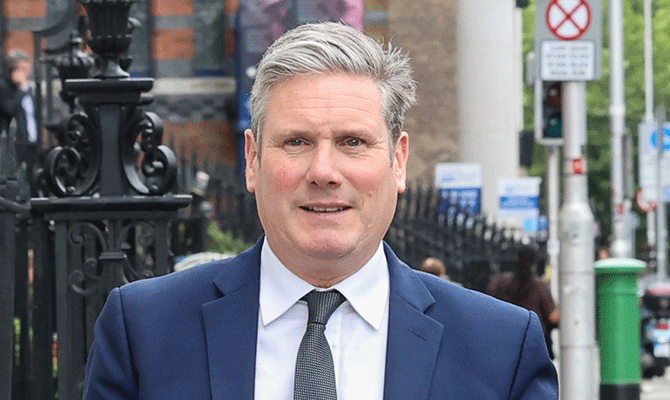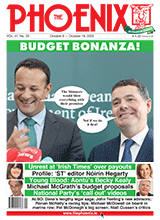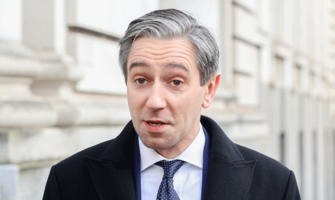
Keir Starmer
Leo Varadkar says relations with Britain have improved in the last year. What he didn’t say was that is because of the departure of former prime ministers Boris Johnson and Liz Truss, which set a pretty low bar for improvement. Serious strains remain on a number of fronts. The biggest one is the cynically titled Northern Ireland Troubles (Legacy & Reconciliation) Act. As Dublin and the families of victims say, it will produce the opposite of reconciliation.
The act gives amnesty to anyone fully co-operating with the so-called Independent Commission for Reconciliation – that word again – and Information Recovery (ICRIR). Most controversially, from next May it blocks all future civil cases and, incredibly, inquests related to the Troubles. All of the victims’ groups in the north say they won’t co-operate with any of it.
Johnson made no secret of the purpose of the act when it was introduced at the behest of a clutch of Colonel Blimps on the Conservative back benches led by ex army officer Johnny Mercer MP. It is to prevent former soldiers being prosecuted for killing or injuring people during the Troubles, something they did virtually with impunity. Yes, there were some convictions but only a couple of soldiers served light sentences and most, including paratrooper Lee Clegg’s conviction for killing a joyrider, were overturned after campaigns by right-wing British newspapers. One of Clegg’s defence team was Keir Starmer.
No one is betting that any former soldiers will come forward to apply to the ICRIR for amnesty. Nor will any former IRA members volunteer information. Investigations, no longer the responsibility of police, will be fruitless.
Cynics say the whole exercise is merely performative because this British government knows the European Court of Human Rights (ECHR) will find the Northern Ireland Troubles Act to be unlawful on several grounds.
Besides, Starmer, currently 20 points ahead in the polls, has said that if he wins the next election he will repeal the act.
The Tories, therefore, can say they have passed the act their ex-military backbenchers demanded and made good their manifesto commitment. It’s not their fault if Labour repeal it or the ECHR overturns it. Anyway, it will take years for the ECHR to get around to hearing the cases or indeed Labour to repeal the act and replace it with something else that Dublin and the northern parties will accept. Meanwhile witnesses die and evidence ‘gets lost’.
Nevertheless, relatives of victims and survivors of army brutality are not discouraged. Already 19 groups or individuals have applied for judicial reviews to declare the act unlawful, unconstitutional and incompatible with the European Convention. On September 28 High Court judge Mr Justice Colton set aside November 13 for hearings to begin.
Varadkar has promised to decide in the next week or so whether to take an inter-state case against Britain to the ECHR. As he said, such a case “would have political implications for Ireland’s relationship with Britain”. But he added: “The voice of the victims is the Government’s primary concern.”
No doubt his considerations will include the prospect of a Labour victory in next year’s British election and a repeal of the Northern Ireland Troubles Act making a challenge in the ECHR redundant. He would also consider whether the ECHR would find the act unlawful in all respects, which it may not.
On the other hand, the Irish government could wait for the progress of the many challenges in courts in the north.
It is odds on that Varadkar won’t move quickly, hoping for better relations with an incoming Labour government. As it is, this Conservative government continues to ignore Dublin’s concerns.
For example, Varadkar has asked repeatedly, but to no avail, for information about talks with the DUP on restoration of Stormont, and the British are insisting on the stupid electronic visa scheme for non-Irish visiting the north, which is badly damaging tourism north-south. At the Tory conference last weekend the northern secretary made no mention of the Irish government let alone plans for co-operation.
Improvement mar dhea!


















